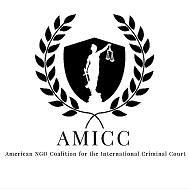When most ruled out
the possibility of the ICC involvement in the situation of Palestine,
surprisingly, three years after the incident, on May 14th, 2013, the Union of
the Comoros, a State Party to the ICC, referred the situation to the Court in
relation to the May 2010 Israeli raid on the Humanitarian Aid Flotilla bound
for the Gaza Strip. The legal representative of the victims, the Turkish law
firm Elmadag, supposedly approached the government of Comoros, where one of the
vessels was registered and proposed that it present to the ICC the referral of
Comoros naming the Israelis allegedly responsible for the attack. Comoros which
does not maintain diplomatic ties with Israel, accepted. Subsequently, the ICC
Prosecutor decided to launch a preliminary examination to determine whether the
criteria to open a formal investigation were met. This referral presents some
peculiar legal features that overshadow the admissibility of the situation
before the Court. The Rome Statute makes it clear that the ICC will have
territorial jurisdiction over crimes committed on board vessels registered in a
State Party. However, since the gravity of the crimes committed is relatively
minor compared to the other situations before the Court, will this situation be
considered serious enough to call for a formal investigation? Is this, as the
Rome Statute requires a case that “shocks the conscience of humanity” or is ‘of
concern to the international community as a whole”, should we expect the ICC to
be bold enough to consider the broader situation of Gaza or even the overall
Israel- Palestine conflict? Those questions are tightly linked since the
gravity threshold might be satisfied only if the referral is considered as part
of the broader situation.
A second scenario
calls for consideration. On account of its new status as a "non-member
observer state" after the UN General Assembly vote on November 2012, the
Palestinian Authority has repeatedly alluded to its intention to refer the
situation to the ICC should Israel continue its settlement policy. This would
require settling the questions of the ICC's temporal and territorial
jurisdiction, both being especially complex because of the ambiguous status of
Palestine as a political entity. In answering these questions, the political
stakes at hand are also to be acknowledged. Without necessarily having any real
intention to refer the situation to the ICC, Palestine seems to use that
possibility as a political leverage to bring Israel to the negotiating table
and kick start the peace process.
The stance that the
Court will take towards this situation will be crucial in shaping both the
public international opinion and its relationship with states. This situation
is a double-sided coin. Any development at the Court related to Israel could on
the one hand alter the fragile relationship between the US and the ICC and thus
deprive the latter of a crucial support, and on the other hand recover the
Court's legitimacy within the "nonwestern nations" that accuse the
Court of selectivity and especially targeting weak African states.
The new advocacy document released by AMICC aims to explore
the two main scenarios that could lead the Court to build cases involving
Palestinian and Israeli individuals: either as a result of the recent referral
by Comoros, or through a referral of the situation to the ICC by Palestine. By
taking into account both legal and political factors, this paper considers how
a potential case involving nationals of the two countries would both be
determining for the Court’s jurisprudence to come, and affect the international
outlook on it. In particular, this paper seeks to address the crucial United States'
concern that this potential case is raising.
Read more here.
By Maryne Rondot

